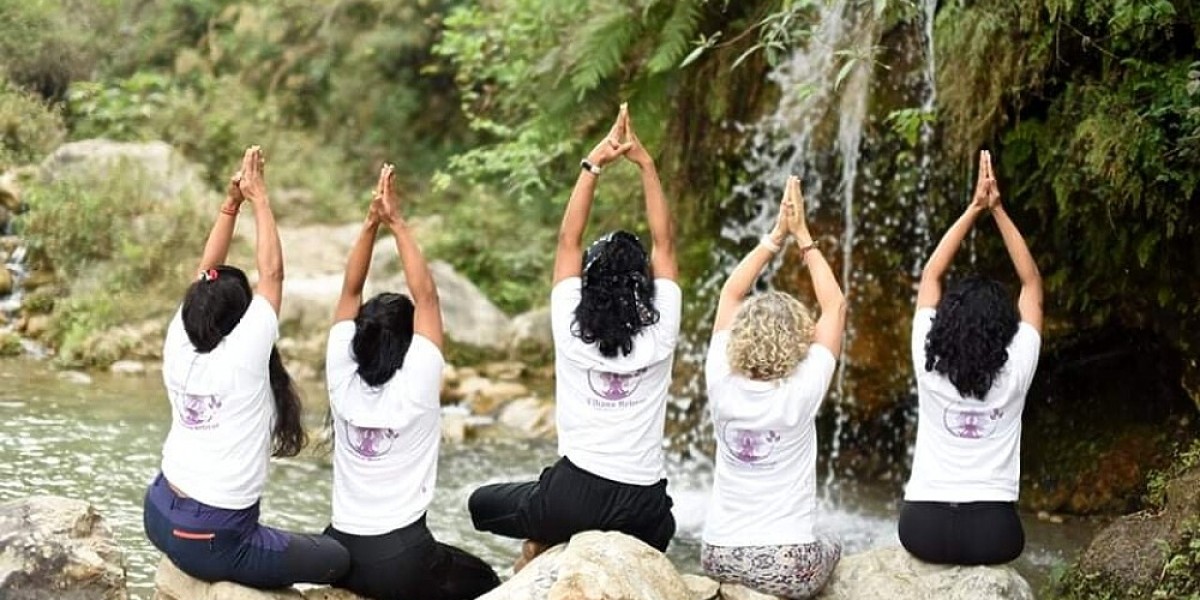Introduction
In today’s fast-paced world, the prevalence of mental health issues such as depression and anxiety has reached alarming levels. While conventional treatments like medication and therapy remain crucial, an increasing number of individuals are seeking alternative and holistic approaches to complement their healing journeys. Transformative retreats for depression and anxiety have emerged as powerful avenues for mental health rejuvenation. These retreats offer immersive experiences that blend therapeutic practices, mindfulness, physical activities, and nature, providing a sanctuary for profound personal growth and healing.
Understanding Depression and Anxiety
Before delving into the transformative potential of retreats, it’s important to understand the nature of depression and anxiety. Anxiety, on the other hand, involves excessive worry, restlessness, and physical symptoms such as increased heart rate. Both conditions can severely impact an individual’s quality of life, relationships, and overall well-being. Traditional treatments, including psychotherapy and pharmacotherapy, are effective for many, but they often need to be complemented by lifestyle changes and holistic approaches to achieve lasting improvement.
The Appeal of Transformative Retreats
Transformative retreats for depression and anxiety offer a unique blend of elements designed to foster mental, emotional, and physical well-being. Here are some key features that make these retreats appealing:
Holistic Approach: These retreats typically incorporate a range of holistic practices such as yoga, meditation, mindfulness, and breathwork. These activities help in reducing stress, improving mood, and enhancing overall mental health.
Nature Connection: Many retreats are located in serene, natural settings, which play a crucial role in the healing process. Nature has a calming effect on the mind and body, helping individuals disconnect from their routine stressors and reconnect with themselves.
Supportive Community: Being part of a supportive group of individuals who share similar struggles can be incredibly therapeutic. The sense of community and understanding fosters a safe space for sharing and healing.
Professional Guidance: Retreats are often led by experienced therapists, counselors, and wellness experts who provide personalized care and guidance throughout the journey.
Detoxification: Many retreats offer dietary plans that promote physical detoxification, which can also have a positive impact on mental health. Nutritional support helps in restoring balance and vitality to the body and mind.
Components of Transformative Retreats
A transformative retreat for depression and anxiety usually includes several core components designed to address different aspects of mental health:
Mindfulness and Meditation: Practices such as mindfulness and meditation are central to these retreats. Mindfulness helps individuals stay grounded in the present moment, reducing rumination and negative thought patterns that are common in depression and anxiety. Meditation promotes relaxation and inner peace, enhancing emotional resilience.
Yoga and Physical Activity: Yoga combines physical postures, breath control, and meditation to create harmony between the mind and body. These activities also improve physical health, contributing to overall well-being.
Therapeutic Workshops: Many retreats offer workshops focused on emotional healing, cognitive-behavioral techniques, and stress management. These sessions provide practical tools and strategies to cope with and overcome mental health challenges.
Nature Therapy: Immersion in nature, whether through guided hikes, forest bathing, or simply spending time outdoors, is a powerful component of these retreats. Nature therapy helps reduce anxiety and depression by lowering cortisol levels and promoting a sense of tranquility.
Creative Expression: Activities such as art therapy, music therapy, and writing can facilitate emotional expression and healing. Engaging in creative pursuits allows individuals to process and release pent-up emotions in a healthy and constructive manner.
Nutritional Support: A balanced diet is essential for mental health. Retreats often include nutrition plans that emphasize whole foods, organic produce, and balanced meals that support brain function and overall health.
Benefits of Transformative Retreats
The benefits of attending a transformative retreats for depression and anxiety are multifaceted:
Reduced Symptoms: Many participants report a significant reduction in symptoms of depression and anxiety after attending a retreat. The combination of therapeutic practices and a supportive environment can lead to noticeable improvements in mood and mental clarity.
Improved Coping Skills: Retreats equip individuals with practical coping strategies that they can integrate into their daily lives. This includes mindfulness techniques, stress management tools, and healthier lifestyle habits.
Enhanced Self-Awareness: The immersive nature of retreats encourages deep self-reflection and self-discovery. Participants often gain a better understanding of their emotions, triggers, and patterns, paving the way for lasting personal growth.
Renewed Sense of Purpose: Engaging in a retreat can reignite a sense of purpose and direction. The break from routine and the focus on healing can help individuals reconnect with their passions and goals.
Long-Term Support: Many retreats offer ongoing support after the program ends, such as follow-up sessions, online communities, and additional resources.
Popular Destinations for Transformative Retreats
While transformative retreats are available worldwide, certain destinations are renowned for their exceptional programs and serene environments:
India: The birthplace of yoga and Ayurveda, India offers numerous retreats that combine traditional practices with modern therapeutic techniques. Locations like Rishikesh, Kerala, and Goa are popular for their holistic retreats.
Thailand: Known for its wellness culture, Thailand provides retreats that emphasize mindfulness, detoxification, and holistic healing. The tropical landscapes add to the allure, creating an ideal setting for mental rejuvenation.
Bali: Bali’s tranquil atmosphere and spiritual heritage make it a sought-after destination for transformative retreats. The island hosts numerous programs focusing on yoga, meditation, and holistic therapies.
Costa Rica: With its lush rainforests and pristine beaches, Costa Rica offers retreats that blend nature therapy with wellness practices. It’s an ideal place for those looking to reconnect with nature while healing their mind and body.
United States: Retreat centers across the US, particularly in states like California, Arizona, and Vermont, provide comprehensive programs that address mental health through a variety of therapeutic and holistic practices.
Conclusion
Transformative retreats for depression and anxiety offer a holistic and immersive approach to mental health recovery. By integrating therapeutic practices, mindfulness, physical activities, and the healing power of nature, these retreats provide a sanctuary for profound personal growth and healing. Whether in the serene foothills of the Himalayas or the tranquil beaches of Bali, these retreats offer a unique opportunity to step beyond the blues and embark on a journey towards lasting mental well-being. For those seeking a comprehensive and supportive path to overcoming depression and anxiety, transformative retreats stand out as a beacon of hope and rejuvenation.






